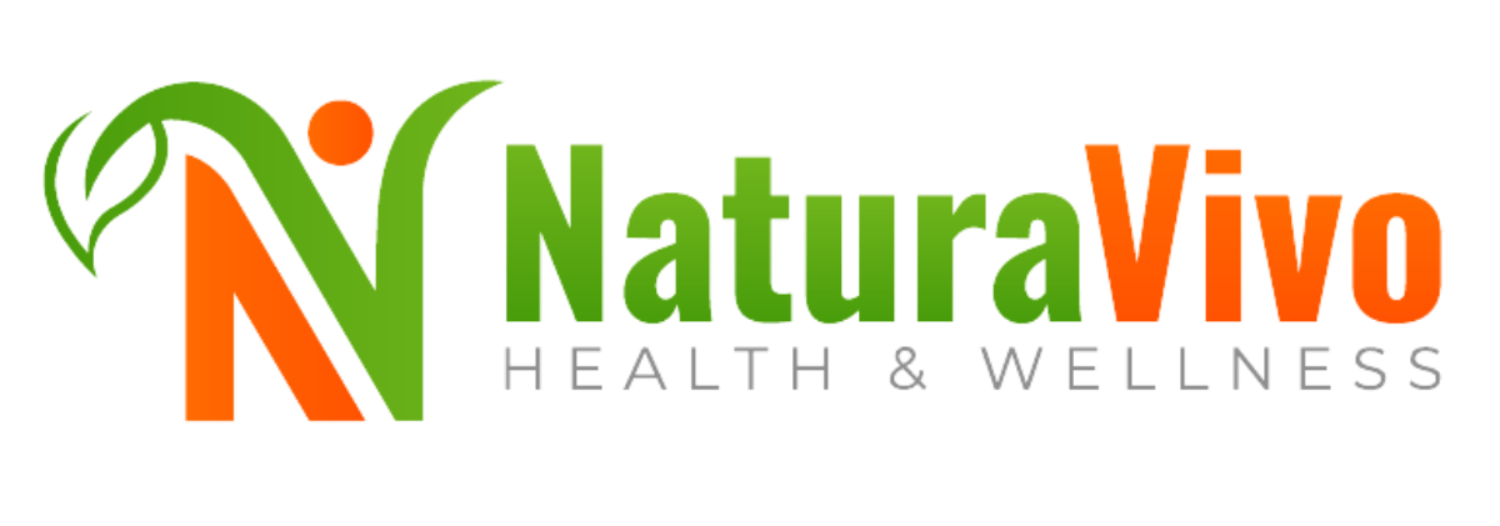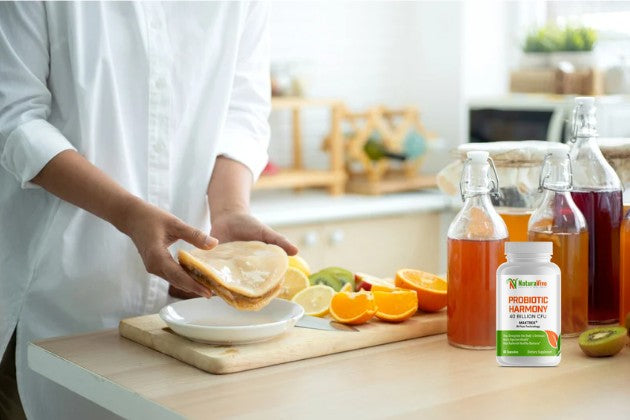Why Probiotics Matter for Your Health
Your gut does more than digest food—it’s the control center for your overall well-being. From strengthening immunity to supporting mental health, your gut microbiome is crucial to your body’s balance. At the heart of this system are probiotics, the "good" bacteria that help maintain a healthy gut environment.
But how can you ensure you’re getting enough probiotics in your diet? The best sources are fermented foods and dietary supplements. In this guide, we’ll explore the benefits of probiotics, how to incorporate them into your daily routine, and the best ways to enhance gut health naturally.
How to Get More Probiotics into Your Diet
1. The Power of Fermented Foods
Fermented foods have been consumed for centuries as a natural way to support gut health. The fermentation process involves Lacto-fermentation, where natural bacteria feed on the sugar and starch in food, producing lactic acid. This process preserves the food and encourages the growth of beneficial bacteria, along with producing:
✅ B vitamins
✅ Omega-3 fatty acids
✅ Enzymes that aid digestion
Many fermented foods naturally contain probiotics or have probiotics added to them. However, it’s important to note that not all fermented foods provide live probiotics. Some undergo processing steps that remove beneficial bacteria, such as baking, canning, or pasteurization.
2. Top Probiotic-Rich Fermented Foods
Not sure where to start? Here’s a list of the best probiotic food sources to add to your diet:
✅ Yogurt
Yogurt is the most well-known probiotic food, containing live and active cultures. It’s widely available and easy to incorporate into meals. Look for yogurt brands that specify live and active cultures on the label.
📌 Tip: Use yogurt in smoothies, salad dressings, and as a healthier substitute for mayonnaise or sour cream.
✅ Kefir
This tangy, drinkable yogurt alternative contains more probiotic strains than regular yogurt and is often better tolerated by people with lactose sensitivity.
📌 Tip: Add kefir to your morning smoothie or enjoy it plain for a probiotic boost.
✅ Sauerkraut & Kimchi
These probiotic-rich foods are made from fermented cabbage and contain Lactobacillus bacteria, which support gut health. Kimchi, a Korean version, adds extra spice and additional health benefits.
📌 Tip: Add to sandwiches, salads, or eat as a side dish. Make sure to buy raw, unpasteurized versions to retain live probiotics.
✅ Kombucha
This fermented tea contains beneficial bacteria, yeasts, and organic acids that promote digestion.
📌 Tip: Enjoy kombucha as a refreshing, low-sugar alternative to soda.
✅ Miso & Tempeh
These fermented soy products are staples in Japanese cuisine, contain gut-friendly bacteria, and are excellent plant-based protein sources.
📌 Tip: Use miso in soups or as a seasoning, and cook tempeh as a meat substitute in stir-fries.
✅ Pickles & Fermented Vegetables
Fermented cucumbers and other vegetables are packed with probiotics when prepared in brine (not vinegar).
📌 Tip: Check labels for naturally fermented options with live cultures.
3. Probiotic Supplements: A Convenient Alternative
While fermented foods are an excellent way to get probiotics, supplements provide a convenient and concentrated source, especially for those struggling with fermented foods' intense flavors.
Unlike food sources, probiotic supplements deliver measurable doses of bacteria strains in colony-forming units (CFUs).
🔹 Some probiotic supplements target digestive health, while others focus on immune function or mental well-being.
🔹 CFU counts in supplements can range from 1 billion to over 50 billion per dose, depending on the brand and strains included.
4. NaturaVivo Probiotic Harmony: A Trusted Supplement Option
If you're looking for a high-quality, natural probiotic supplement, NaturaVivo Probiotic Harmony is a great choice.
🔹 40 Billion CFU per serving
🔹 4 scientifically-backed strains for optimal gut balance
🔹 Supports immune health & digestion
🔹 Vegetarian capsules for easy absorption
Taking a trusted probiotic supplement like NaturaVivo can help bridge the gap when you cannot get enough fermented foods.
5. How Much Probiotic-Rich Food Do You Need?
There is no official recommended daily intake of probiotics. However, experts suggest incorporating as many probiotic-rich foods into your diet as possible.
To ensure a balanced gut microbiome, try to:
✅ Eat at least one serving of probiotic foods daily
✅ Include a variety of sources to diversify gut bacteria
✅ Supplement with a high-quality probiotic if needed
6. Probiotics & Overall Wellness: Beyond Digestion
Probiotics don’t just benefit digestion—they influence many aspects of health:
✔️ Stronger immune function – A healthy gut reduces the risk of infections and inflammatory diseases.
✔️ Improved mood & mental health – Gut bacteria produce neurotransmitters like serotonin, influencing mood and cognitive function.
✔️ Better skin health – Probiotics may help with acne, eczema, and other skin conditions.
✔️ Reduced bloating & gas – By promoting a balanced gut environment, probiotics ease digestive discomfort.

Frequently Asked Questions (FAQs)
1. Can I take probiotics every day?
Yes! Daily probiotic intake is safe and beneficial, whether from food or supplements.
2. What’s the best time to take probiotic supplements?
Probiotics are best taken with meals to protect the bacteria from stomach acid.
3. Are fermented foods better than supplements?
Fermented foods provide additional nutrients, but supplements offer consistent, measured doses of probiotics. Both are valuable.
4. Can probiotics help with weight loss?
Some studies suggest probiotics influence metabolism and fat storage, potentially supporting weight management.
5. Do all yogurts contain probiotics?
No. Look for "live and active cultures" on the label to ensure probiotic content.
6. Are there any side effects of probiotics?
Some people experience mild bloating or gas initially. This usually resolves as the gut adjusts.
Final Thoughts: Start Adding More Probiotics Today!
Probiotics are essential for digestive health, immune function, and overall well-being. Whether through fermented foods or high-quality supplements like NaturaVivo Probiotic Harmony, you can support your gut with beneficial bacteria daily.
Add a yogurt, drink some kombucha, or take a daily supplement. Your gut will thank you!





